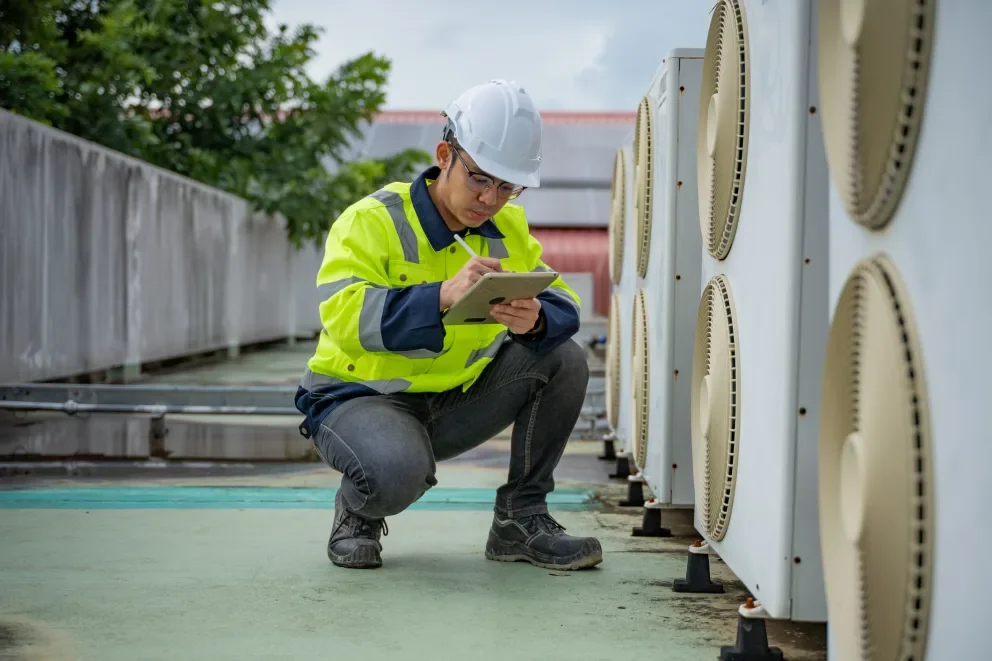Building Construction App to a type of software designed to facilitate the management and operation of construction projects. Such applications provide a digital platform for contractors, project managers, architects, and clients to collaborate and exchange information efficiently. They encompass a broad range of functionalities including project scheduling, budgeting, document management, on-site data collection, and communication among stakeholders. This technology aims to streamline the complex processes involved in construction projects, enhancing productivity and reducing errors.
Increasingly, these applications are becoming indispensable in the construction industry, driven by the need for real-time information sharing and decision-making. They support a variety of tasks, from simple to-do lists to comprehensive project tracking and reporting. Building Construction Apps also offer the advantage of accessibility, as they can be used on smartphones and tablets, allowing users to stay connected with the project’s progress regardless of their location. This accessibility not only boosts efficiency but also ensures that all project members are up-to-date with the latest developments.
The integration of Building Construction Apps into the workflow of construction projects marks a significant transition from traditional paper-based methods to a more digital approach. This shift not only improves precision in project management but also fosters a culture of transparency and accountability among project stakeholders. As construction projects grow in complexity and scale, the reliance on such technology will continue to increase, making it a fundamental tool in the construction industry’s future.
The introduction of Building Construction Apps is transforming the landscape of the construction industry. These digital tools are redefining how projects are managed and executed, promising an era of increased efficiency and accuracy. As the construction sector grapples with challenges such as tight schedules, budget constraints, and the need for quality control, these apps are emerging as vital solutions. They encapsulate the potential to streamline operations, ensuring that projects are completed within budget and timeframes, without compromising on quality.
This technological innovation is particularly pivotal at a time when the industry is under pressure to deliver more with less. Building Construction Apps enable seamless communication and collaboration, essential elements for the timely and successful completion of projects. They demystify the complexities often associated with construction projects, making information and process management more transparent and accessible. By digitizing workflows, these apps not only expedite decision-making but also enhance documentation accuracy, crucial for regulatory compliance and risk management.
As we explore the implications of Building Construction Apps in this article, it becomes clear that their adoption could mark a new phase of operational excellence in construction. These applications are not merely tools for efficiency; they are catalysts for innovation, offering new ways to tackle age-old industry challenges. Through smart integration of technology, the construction industry can look forward to not just surviving but thriving in today’s fast-paced, technology-driven world.
The Evolution of Technology in Construction Management
Over the past decades, the landscape of construction management has undergone a remarkable transformation. Initially, processes were heavily reliant on manual labor. Tasks that demanded extensive time and effort, such as drafting blueprints or scheduling, were done by hand. However, the advent of technology has significantly enhanced efficiency in these areas. Today, software solutions streamline project planning and management, marking a profound shift from traditional methods.
One of the first major technological advancements was the introduction of computer-aided design (CAD) software. This innovation allowed architects and engineers to draft more precise blueprints. As a result, it reduced errors and improved the quality of construction projects. Moreover, it saved countless hours of manual drafting, leading to quicker project completions. Building Construction App
Furthermore, project management software has revolutionized how projects are scheduled and tracked. These tools provide real-time updates and facilitate better communication among team members. Consequently, decision-makers can identify and address issues promptly, ensuring projects stay on schedule and within budget.
Additionally, modern technologies such as drone surveying and 3D printing have emerged. Drones enable site managers to monitor construction progress from aerial views, identifying potential problems that might not be visible from the ground. Meanwhile, 3D printing allows for the creation of models and even building components with unprecedented speed and precision.
Besides these, the integration of Building Information Modeling (BIM) has been a game-changer. BIM offers a digital representation of a building’s characteristics, allowing for a more collaborative and integrated approach to construction management. This technology facilitates better-informed decision-making throughout the construction process, from initial planning to the final handover.
In conclusion, the evolution of technology in construction management has greatly enhanced the efficiency, accuracy, and safety of construction projects. As new technologies continue to emerge, we can anticipate further advancements that will shape the future of construction.
Key Features and Benefits of Using Construction Apps
In today’s fast-paced construction industry, innovative tools have become indispensable. Construction apps, in particular, bring forth a range of features and benefits that propel efficiency, accuracy, and collaboration to new heights. They integrate seamlessly into daily operations, enhancing productivity and streamlining project management.
One of the key features of these apps is real-time communication. Project stakeholders can now share updates, changes, and critical information instantly, regardless of their physical location. This immediacy reduces delays and misunderstandings, ensuring everyone stays on the same page. Additionally, these apps offer document management solutions. Plans, contracts, and reports can be accessed, edited, and shared by authorized personnel from any device. This not only saves time but also reduces the carbon footprint associated with paper documents.
Task scheduling and tracking capabilities represent another significant advantage. Managers can assign tasks, set deadlines, and monitor progress in real time. This feature aids in preempting potential delays and reallocating resources efficiently, thus keeping projects on track. Furthermore, safety compliance is simplified through digital checklists and incident reporting tools. These apps provide an accessible way for teams to monitor safety protocols, thereby minimizing risks and ensuring compliance with regulatory standards. Building Construction App
Moreover, construction apps often come equipped with GPS functionality. This allows for precise location tracking of machinery and personnel, enhancing logistical coordination. It also contributes to the security of valuable assets on site.
Finally, the analytics and reporting features of construction apps offer invaluable insights into project performance. Stakeholders can analyze data to identify trends, foresee potential issues, and make informed decisions. This analytical capability fosters a culture of continuous improvement, driving projects toward successful completion.
In essence, construction apps serve as a multi-faceted solution that addresses a wide array of operational challenges. They facilitate smoother workflows, foster effective communication, and enhance decision-making, underpinning the overall success of construction projects.
Overcoming Challenges in Construction Projects With Mobile Solutions
Construction projects are complex endeavors. They require meticulous planning and execution. Various challenges, such as delays, cost overruns, and communication breakdowns, frequently occur. However, mobile solutions have emerged as a powerful tool to tackle these difficulties. By harnessing the capabilities of mobile technology, project managers can streamline operations, enhance communication, and boost productivity.
Firstly, mobile applications facilitate real-time communication and data exchange. This feature ensures that all project stakeholders are on the same page. Updates on project progress, changes in plans, or immediate feedback are shared instantly. Consequently, decision-making becomes faster and more informed. Building Construction App
Secondly, the use of mobile solutions for document management has revolutionized information accessibility. Traditional paper-based methods are cumbersome and prone to loss or damage. In contrast, digital documents stored on mobile devices are easily retrievable and updateable. Workers on-site can access construction plans, safety protocols, or client requirements at the tap of a finger.
Moreover, mobile technologies enable effective resource tracking. Equipment and materials can be monitored in real-time. This capability reduces the risks of theft or misplacement, ensuring that projects do not suffer unnecessary delays. Additionally, it helps in optimizing resource allocation, leading to cost savings.
Furthermore, mobile solutions support on-the-go task management. Supervisors can assign tasks, track progress, and provide feedback using their mobile devices. This approach improves task alignment with project goals and timelines. It also enhances worker accountability and motivation.
Lastly, safety in construction projects is paramount. Mobile apps can deliver safety training, send alerts about potential hazards, or provide quick access to emergency procedures. Thus, they play a crucial role in maintaining high safety standards.
In conclusion, overcoming challenges in construction projects requires adaptability and the right technological tools. Mobile solutions offer a versatile and effective method for enhancing project management. They simplify complex processes, improve communication and coordination, and ensure that projects are completed on time and within budget. The construction industry stands to benefit immensely from fully embracing these technological aids. Building Construction App
Integrating Construction Apps with On-site Workflows
In the dynamic world of construction, efficiency and accuracy are paramount. This goal has become more achievable with the advent of construction apps designed specifically for on-site workflows. These tools play a pivotal role in streamlining operations, ensuring that project managers and workers can tackle their tasks with more precision and in less time.
Firstly, construction apps facilitate real-time communication. This advancement is crucial, as it bridges the gap between various team members. No longer do project managers need to rely on cumbersome email chains or delayed messages. Instead, instant updates can be shared, fostering a more cohesive project environment.
Additionally, these applications provide access to critical information at the fingertips of those who need it. Whether it’s architectural drawings or compliance documents, the ability to instantly retrieve these resources minimizes downtime and confusion on-site. As a result, teams can adapt to changes or resolve issues with unprecedented speed.
Moreover, integrating these apps into daily workflows enhances accountability among workers. With features like task assignments and progress tracking, it becomes easier to identify bottlenecks and areas needing improvement. Consequently, this transparency leads to a more productive and engaged workforce.
However, successful integration requires a thoughtful approach. Training sessions are essential to ensure that all team members are proficient in using the new tools. Equally important is the selection of apps that are user-friendly and compatible with the existing technological infrastructure. Building Construction App
In conclusion, construction apps represent a significant leap forward in managing on-site workflows. By facilitating communication, improving access to information, and increasing accountability, these tools empower teams to complete projects more efficiently and with higher quality. The construction industry, therefore, stands on the brink of a technological evolution that promises to redefine traditional practices.
Future Trends in Construction Technology and Mobile Applications
The construction industry is experiencing an unprecedented transformation. This change is driven by rapid advancements in technology and mobile applications. Consequently, future trends are set to revolutionize the way projects are managed and executed. Among these, augmented reality (AR) stands out. AR allows for the superimposition of digital images on real-world views. Workers, for example, can visualize the end result of a project in its actual environment before construction begins.
Furthermore, the integration of the Internet of Things (IoT) in construction processes is gaining momentum. IoT enables devices to collect and exchange data. This technology ensures that machinery can communicate, improving operational efficiency. Moreover, it significantly enhances safety on construction sites by monitoring conditions in real-time. Building Construction App
Moreover, mobile applications are becoming increasingly pivotal. They offer the convenience of accessing project information from any location. This flexibility fosters improved communication and collaboration among team members. Also, these apps support project management through features like scheduling, budget tracking, and documentation.
In addition, the adoption of 3D printing in construction is on the rise. This technology allows for the creation of complex building components with precision. It also reduces waste and potentially lowers construction costs. Not only does it streamline the production process, but it also opens up possibilities for innovative designs that were once considered impractical.
Lastly, advancements in artificial intelligence (AI) are set to further enhance the capabilities of mobile applications. AI can analyze vast amounts of data to predict project outcomes, identify risks, and suggest mitigations. This anticipatory approach ensures that decision-makers can act swiftly to keep projects on track.
In conclusion, the future of construction technology and mobile applications looks promising. It promises to enhance efficiency, safety, and creativity in the construction industry. Building Construction App. With these tools, professionals are better equipped to face the challenges of tomorrow’s construction projects.



